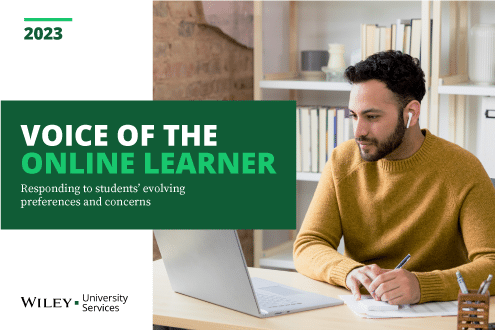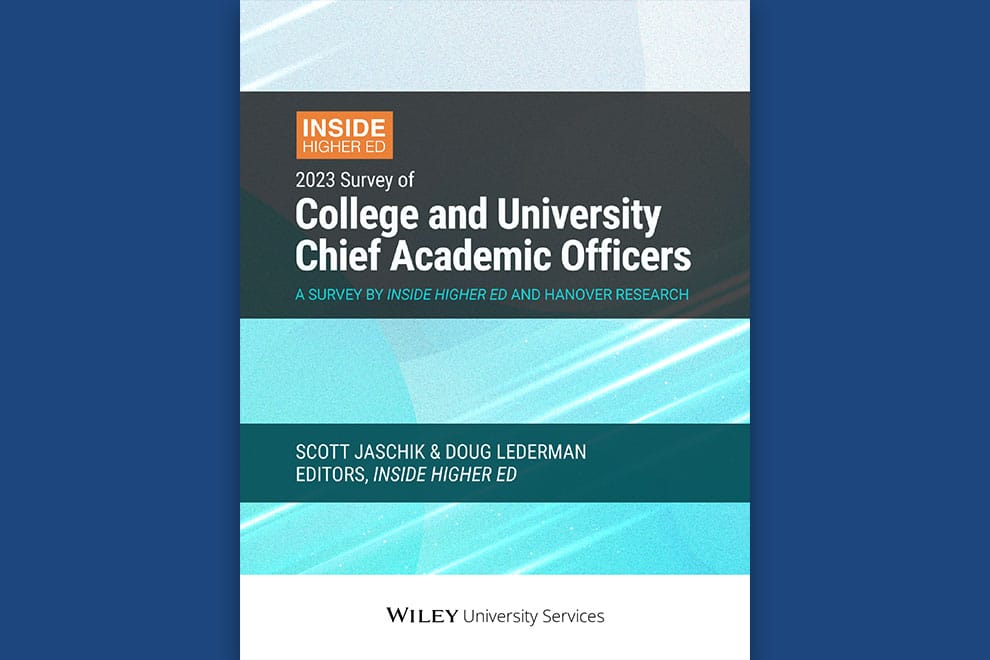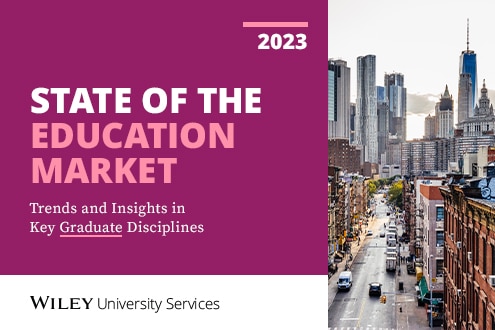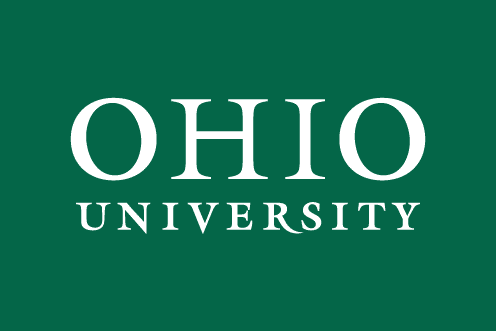Background
Located in Rock Hill, South Carolina, Winthrop University has fostered a reputation that touts high-caliber academics, championship athletics, and student-centered achievements. To expand their online programs, Winthrop entered into a partnership with Wiley University Services in 2017. Through this partnership, the online Master of Social Work (MSW) was built. Today, there are more than 250 students in this rapidly expanding program.
Challenge: Ensuring Course Assignments Meet Students’ Needs
Winthrop’s online MSW program was growing, which underscored the importance for it to continue to evolve and adapt to students’ needs. Even though there was anecdotal evidence that courses were effective for students, both Winthrop faculty and the Wiley team wanted to empirically demonstrate that course assignments and activities were meeting student needs and expectations.
Moreover, because the students in the MSW program were experiencing some evaluation fatigue, program leadership needed to think creatively about ways to derive more information from students on what was working well within the program and what needed improvement.
The program conducts standardized end of semester evaluations; however, there was a need for immediate feedback from students about specific activities within courses. “The learning designers were hungry for feedback in terms of individual assignments, and the program faculty were eager for feedback on if students felt these specific assignments matched the assignment purpose,” said Jackie Intres, learning designer at Wiley.
The MSW faculty felt they had better opportunities to openly discuss students’ feelings towards projects and assignments in their campus-based classes. The in-person environment allowed for faculty to be more accommodating and responsive, and they wanted to find a way to produce this type of meaningful, real-time feedback in the online setting.
By obtaining these inputs and then identifying areas of opportunity, the team would then be able to make adjustments to classes, activities, and assignments to ensure online students were learning in efficient, positive ways. And asking students for their responses helps to create a “culture of feedback,” which gives greater significance to student opinion and shows them that their viewpoints matter.
Strategy: Improving Student Experiences Through Direct Evaluations
To allow students to provide their inputs throughout courses, Winthrop leveraged its partnership with Wiley to create a new, more comprehensive feedback system.
The Wiley team developed short evaluations that would occur immediately after specific assignments or activities were completed. Students would receive a prompt, depending on the student’s operating system, to respond in a low-stakes capacity about how a task went. In this context, students had the opportunity to provide immediate, accurate, and thorough feedback to items as soon as they were finished.
“This feedback is not about the course. It’s about that specific activity,” Associate Professor Dr. Duane Neff said. “So, it adds depth to what we’re learning about the online experience for the students, and that is the ultimate goal.”
Wiley’s Academic Services team worked with faculty and administrators to create custom questions in a way that would motivate students to respond candidly. Moreover, the questions were created to help the team collect information so necessary adjustments could be made to specific assignments and activities before the next offering of the course.
As an example, students were prompted to give feedback after they completed a scavenger hunt searching for various social service resources within their community. After students completed the task, they were asked, “Did this activity increase your knowledge of social service resources within your community?” This direct question has a much more practical application than a broader question like “Was this activity helpful?” Faculty members reviewed and analyzed survey responses and adjusted accordingly.
Neff credited Wiley’s Learning Designers for asking the right questions, stating, “They have been exceptional to work with. I have been blown away by our ability to work together on creative, innovative solutions.”
Results: Pragmatic Answers from Efficient Questions
Students have enthusiastically begun to take advantage of these assessments. With responses that ranged from “parts of the video were confusing” to “this assignment was OK, but I liked last week’s assignment better,” faculty are able to make adjustments while the course is still underway. Additionally, the Wiley team has learned what students find helpful and what they feel could be improved. All of this is possible when students are asked timely, lightweight feedback questions.
This project could not have been completed without the robust partnership between Winthrop and Wiley. “One of the strong points of working with Wiley is working with the learning designers on course development. They are professional and have helped our faculty grow from on-ground educators to online educators,” said Christopher J. Ward, program coordinator of the online Master of Social Work program. “A large part of our success has been from the relationship, the education, and the development that has come from the Wiley learning designers to our faculty.”
To access additional insights about the program development process, including what it’s like to work with a learning designer, visit our Resources page.

















